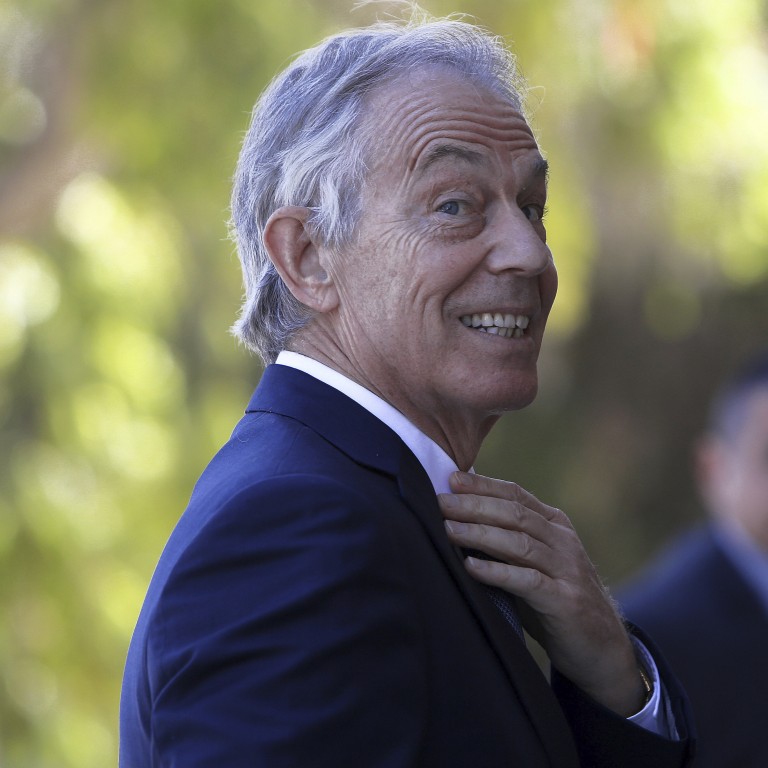
Tony Blair: the big knighthood backlash and why he’s still a polarising figure
- Petition to rescind knighthood for former UK prime minister tops 1 million signatures
- Tony Blair’s legacy still stained by his support for the 2003 US-led invasion of Iraq
The queen on New Year’s Day made Blair, 68, a Knight Companion of the Most Noble Order of the Garter, an honour bestowed upon all but one of Blair’s predecessors during her reign.
It was perhaps grudgingly given. According to the Sun tabloid newspaper, the queen has disliked Blair since the 1997 death of Princess Diana, which happened three months after he led the Labour Party to a historic election victory after almost two decades of Conservative rule.
Why the fuss over Tony Blair’s long hair?
The then young prime minister’s approval ratings shot to 93 per cent after he tapped into the national mood by calling Diana the “People’s Princess”. This was as the monarchy was hit by public blowback from its initial silence after her death.
But five years later, Blair alienated many by joining the 2003 US-led invasion of Iraq after Afghanistan, conflicts that resulted in the deaths of hundreds of British troops and hundreds of thousands of civilians.
“Tony Blair caused irreparable damage to both the constitution of the United Kingdom and to the very fabric of the nation’s society,” wrote Angus Scott, a voice artist from Norfolk, east England who started the petition for Blair’s knighthood to be cancelled.
“He was personally responsible for causing the death of countless innocent, civilian lives and servicemen in various conflicts. For this alone he should be held accountable for war crimes,” Scott said.
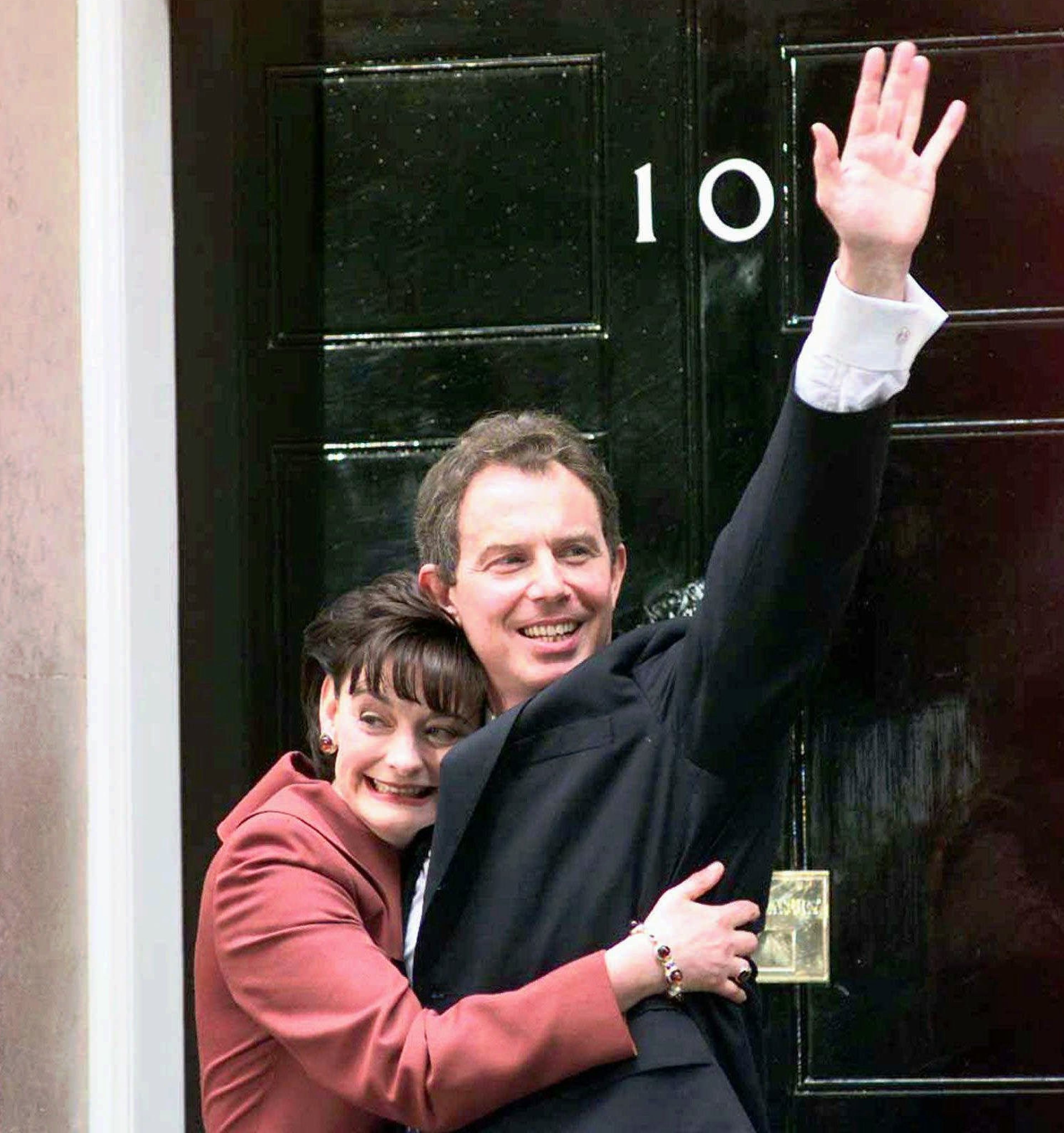
Blair swept to power in the greatest landslide victory in the Labour Party’s near-100-year history on the promise of being a moderniser of both the party and the country.
“He came over fantastically well on TV and sounded honest and plausible,” said Quentin Peel, an associate fellow at the Chatham House think tank.
“People were tired of the Conservative government, which was all over the place, and thought he was going to be a real breath of fresh air.”
Former UK PM Tony Blair accused of breaching quarantine rules
Blair gained votes from the aspirational middle class after rebranding the Labour Party “New Labour”, and by scrubbing its tired old image of a party of strikes and benefits.
In Blair’s decade in office, during which he was elected another two times, he presided over some domestic successes, not least the 1998 Good Friday Agreement that led to peace in Northern Ireland after decades of violence. He also fulfilled a promise to hand more power to Scotland.
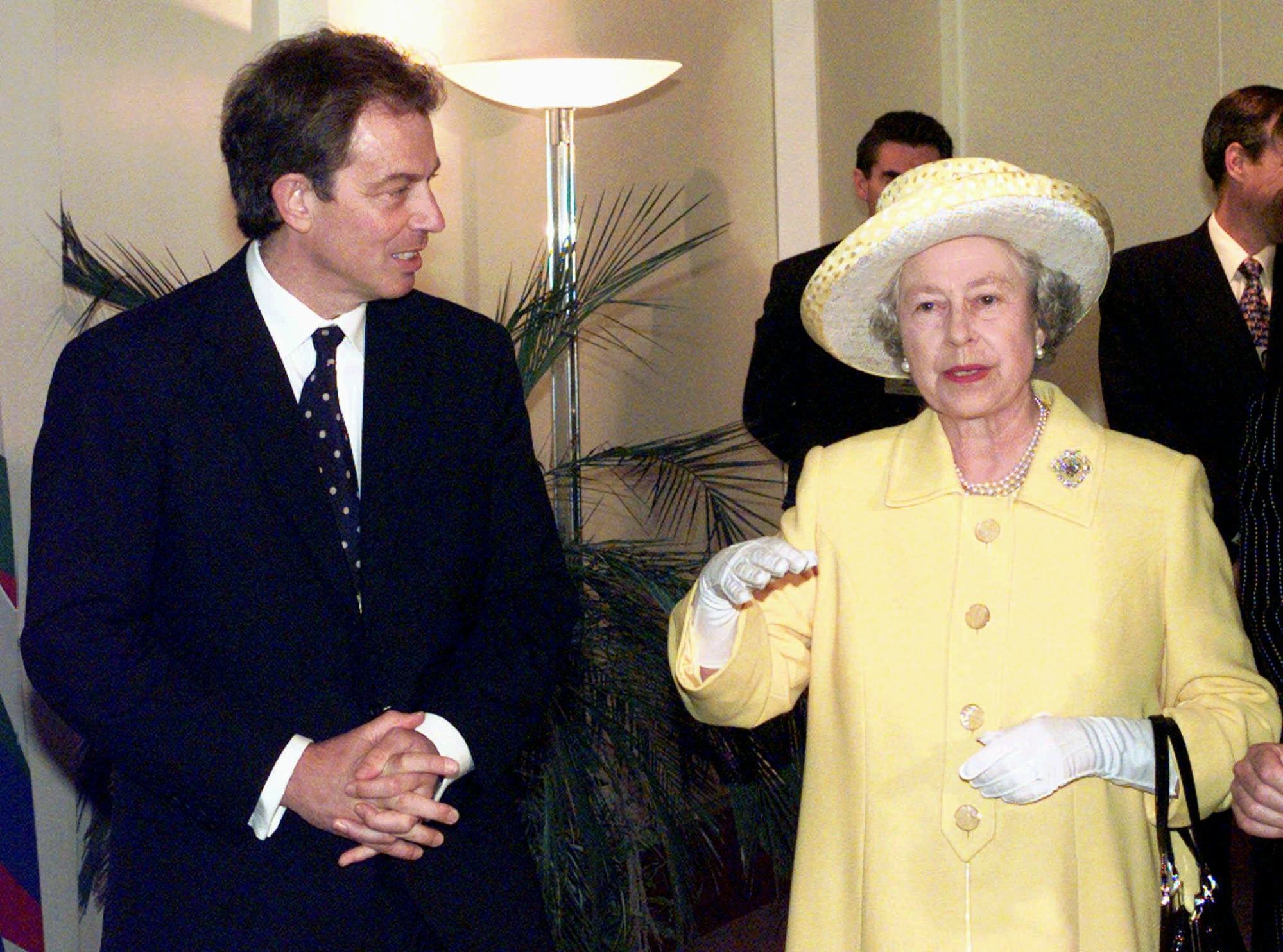
The early Blair cultivated the brand of “Cool Britannia”. He legislated on equal rights for gay couples, raised taxes of higher income earners and introduced a national minimum wage for lower paid workers.
But then the September 11 attacks on the United States happened. Blair declared his unwavering support for George W Bush’s “War on Terror” that began with invasion of Afghanistan in 2001 followed by Iraq two years later.
More than a million people marched in London in 2003 against intervention in Iraq, one of the biggest demonstrations the UK capital has ever seen.
Tony Blair, Abu Dhabi crown prince to advise on Indonesia’s new capital
He was never publicly forgiven by the Labour Party’s left wing, led by the likes of the anti-war MP Jeremy Corbyn, who was party leader from 2015 to 2020.
“In going to war for good, Blair broke the trust people had in him. He blew it in this idiotic way with a country that never really wanted to go to war,” Peel said.
Some observers say Blair was driven to back Bush by a kind of moralistic hubris and an obsession with his legacy.
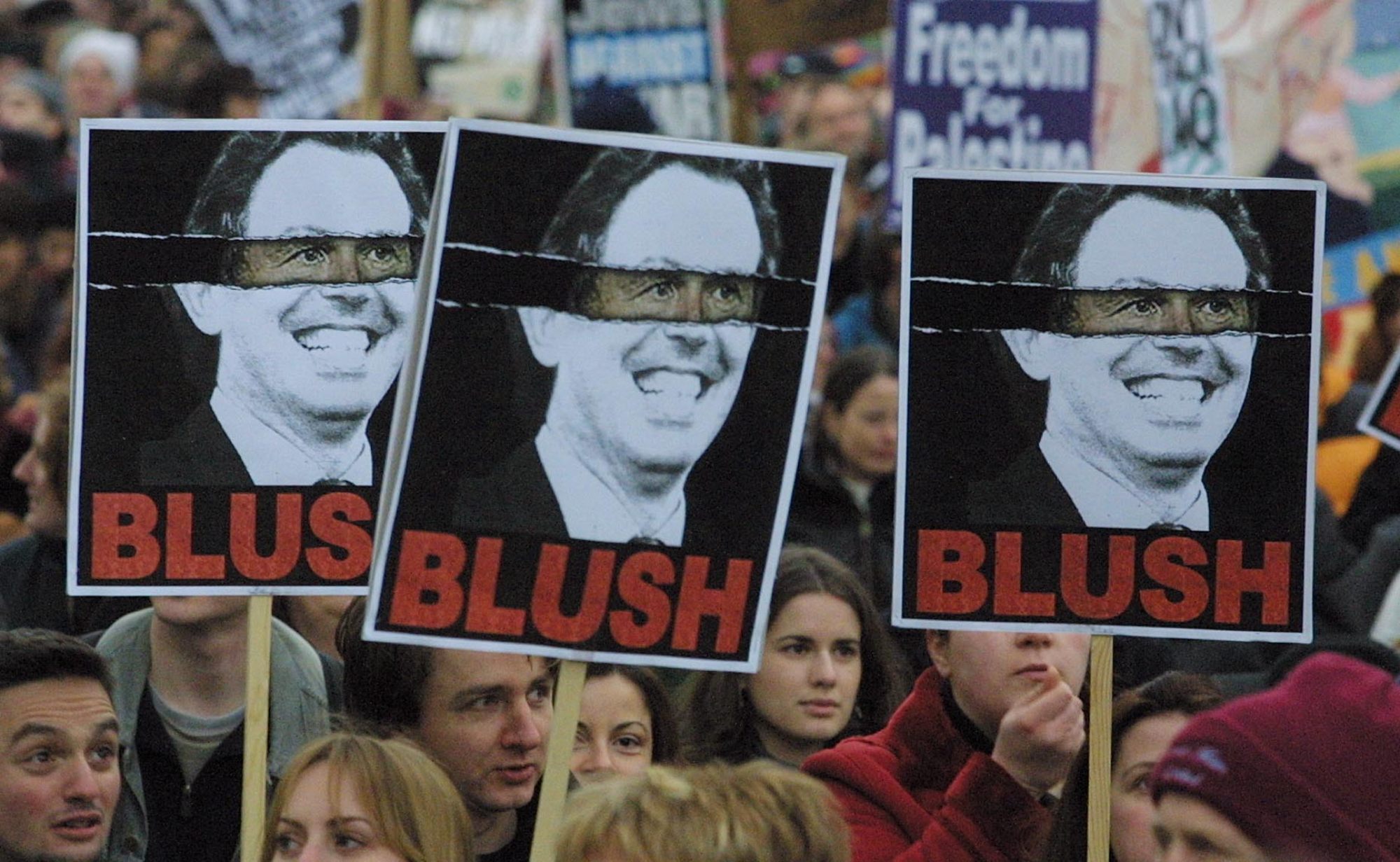
Blair had some early foreign policy successes. British troops played a crucial part in the stopping of two potential genocides: Kosovo in 1999 and Sierra Leone in 2000. The prime minister was looking for a hat trick on the international stage.
Blair managed to persuade his cabinet and parliament, many of whom were strongly opposed, to back an Iraq attack.
The Iraq invasion was controversial at the time as it did not have approval from the UN Security Council. Claims that Iraqi strongman Saddam Hussein had weapons of mass destruction later proved false.
“[Blair] carried the House of Commons, and a lot of people who supported him at the time changed their mind since,” said Christopher Painter, a professor emeritus of politics at Birmingham City University.
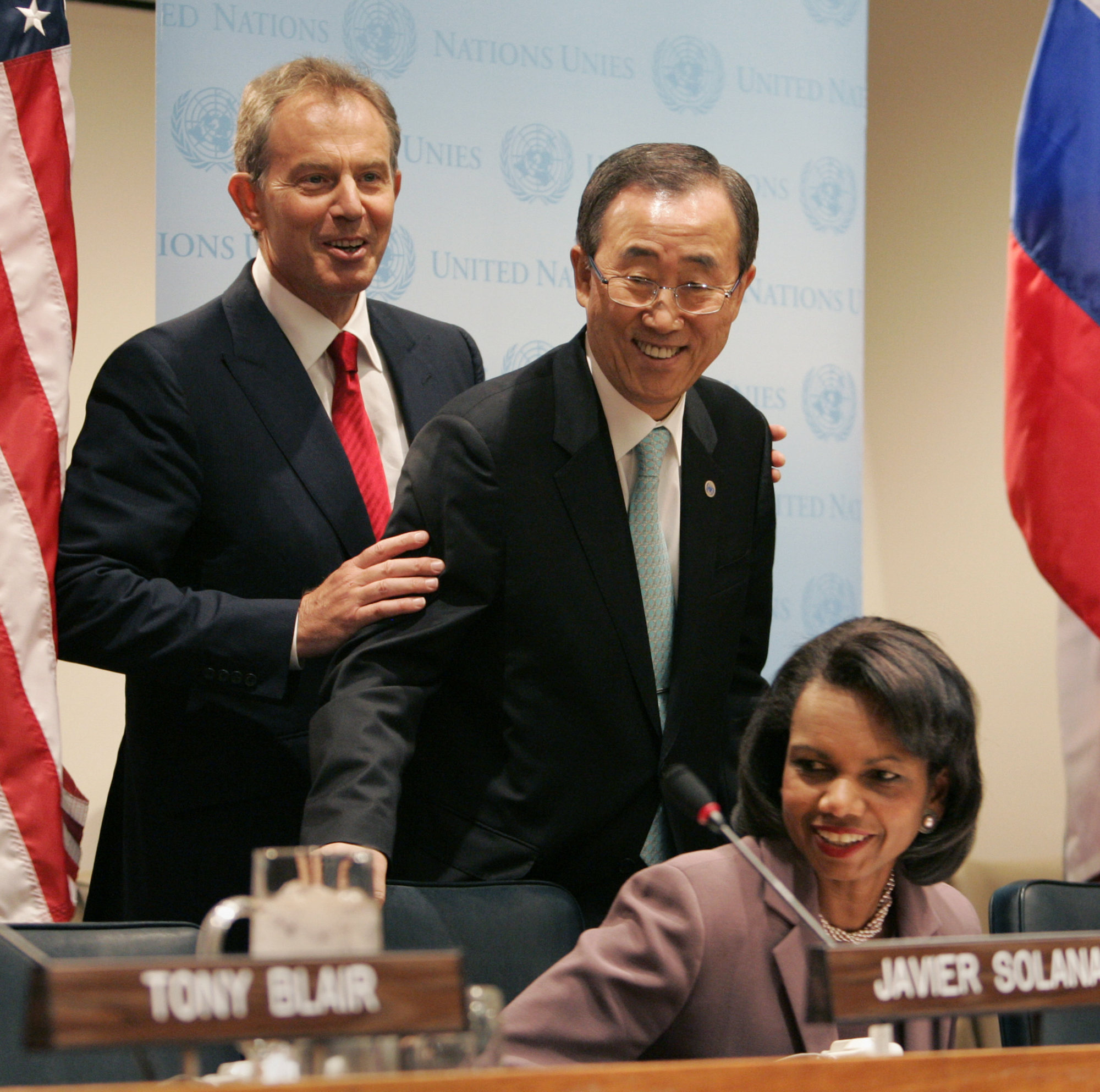
Blair has expressed regret for the lives lost, but not for removing Saddam from power.
“[Blair] has this absolute conviction of own ability to persuade and convince, and a refusal to see his own mistakes,” Peel said.
To his critics this was obvious when, after Gordon Brown took over as prime minister in 2007, Blair was appointed Middle East peace envoy by the Quartet (the US, the European Union, the UN and Russia), a role he carried out for eight years.
The irony was not lost as Blair became peacemaker for a region many believed he helped destabilise.
‘Unbowed arrogance’: British press respond to Tony Blair’s apology for Iraq war
“[Margaret] Thatcher knew she was a remarkable figure, but she didn’t dwell on it too much. There was a much bigger element of ego in Blair,” said Richard Wilson, Britain’s top civil servant between 1998 and 2002, in the recent BBC documentary Blair and Brown: The New Labour Revolution.
“Blair was always exploring who he was and about how far he could push the boundaries of his own achievement and I think that was privately, inwardly the centre of his own ambition.”
Blair became a globe-trotting elder statesman after leaving office, setting up his own non-for-profit group, the Tony Blair Institute for Global Change. He joined the highly lucrative international speaking circuit, wrote memoirs and advised foreign governments.
His travels have put him in the company of the world’s super-rich, even authoritarian regimes. The Blair family fortune has not been confirmed, though various reports have estimated it being £45 million (about US$62 million), perhaps as high as £200 million.
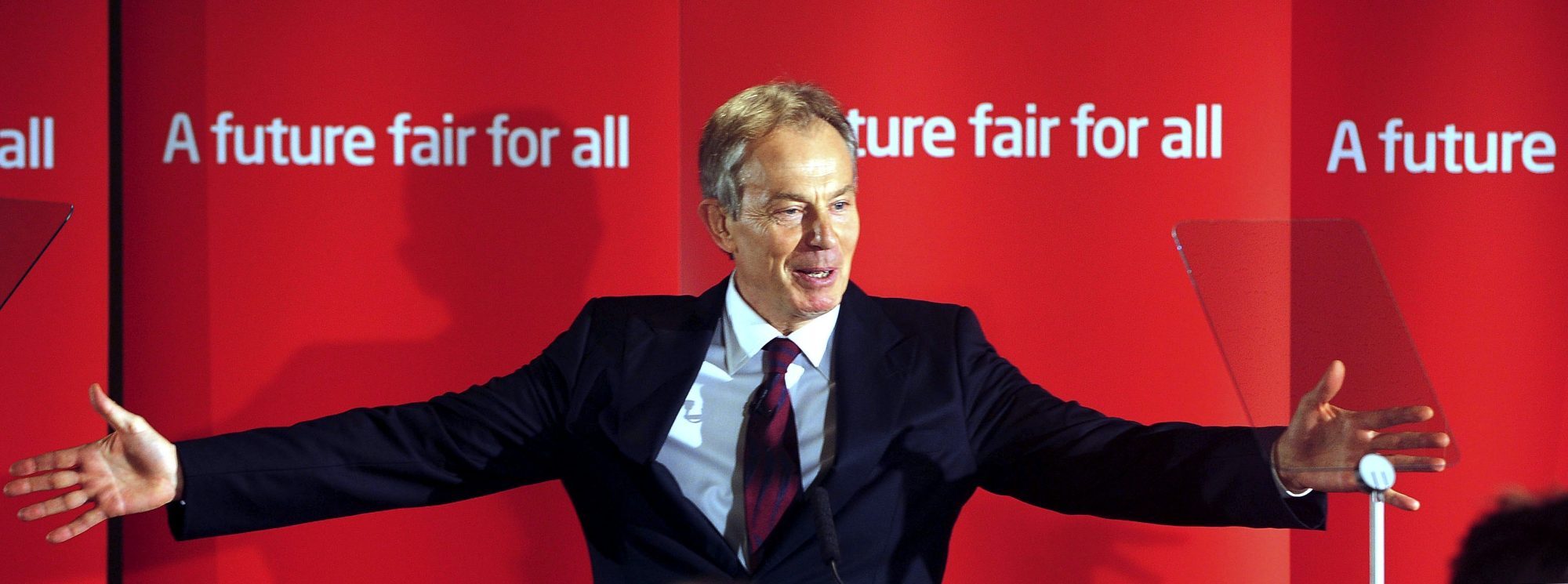
“He has an obvious fascination with wealthy businessmen and the financial sector. And he was really attracted by deregulating the financial sector and laying the foundations for the financial crisis that came in 2008,” Peel said.
Blair has admitted that his government failed to fully understand new financial instruments being used. With cheap lending readily available, the UK housing market powered ahead, only to crash in the global fallout of the US subprime mortgage crisis.
It was left to Blair’s successor Brown to lead Britain through the crisis.
Still parts of the British establishment, including the mainstream media, still regard Blair as the last of the UK’s great statesmen. He was probably one of the most articulate and passionate defenders of the UK’s membership of the EU, and fought against Brexit.
He was never a convinced royalist either, the queen’s apparent dislike for him a case in point. For those on the left desperate for political change in the UK, perhaps his best hope of salvation in the eyes of the public as he enters his twilight years, would have been to be the first prime minister to turn the knighthood down.

